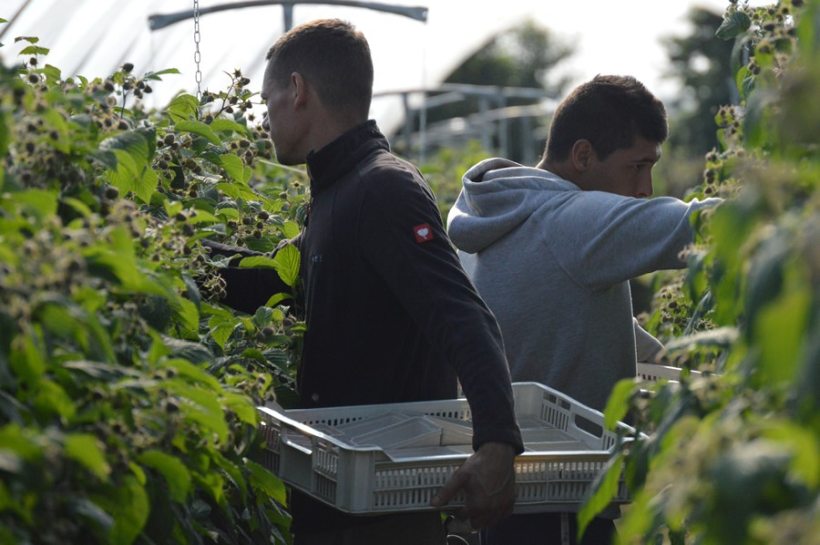
A new report has highlighted the 'serious risks' of human trafficking though the government's Seasonal Workers Pilot (SWP), which was set up to address farm labour concerns.
The report provides independent evidence of foreign farm worker experiences on the SWP, which was launched in the UK in April 2019.
The SWP is a temporary immigration route to bring workers from outside the European Union to work on British farms.
It is targeted at the horticultural sector, seeking to address concerns of labour shortages during the peak harvest period, particularly following the end of free movement for EU citizens.
In its second year, the SWP was expanded from 2,500 to 10,000 workers. In its third and current year, and with the end of free movement, the quota was extended to 30,000 and opened to workers from EU countries.
But in a new report, the Focus on Labour Exploitation (FLEX) charity warns that such temporary migration programmes - like the SWP - are associated with increased risks of labour abuse and exploitation.
Its report says the risks associated include debt bondage, deception in recruitment, discrimination and lack of guaranteed working hours.
In addition, horticulture is a high-risk labour sector due the nature of its product and labour supply chain, isolated workplaces and a large migrant workforce.
In response, FLEX has worked with independent expert on labour exploitation, Caroline Robinson, and the Scottish organisation Fife Migrants Forum to conduct research into Scottish farms.
The research sought to understand the risk of human trafficking for forced labour for people coming to Scotland on the SWP in the horticultural sector.
Based on 146 responses from farm workers, the report identifies a serious risk that forced labour could take place on the SWP if action is not taken.
Issues identified included the risk of unfree recruitment based on a discrepancy between information workers received about the nature of the work and the reality upon arrival, the lack of translation of documentation, and pressure to sign contracts.
In addition, 62% of workers reported incurring debts to travel to the UK to work, which places workers in a more vulnerable position and at risk of accepting work they might otherwise not have accepted.
The report identified a risk of work and life under duress, with workers reporting threats of penalties, unsafe housing in caravan accommodation, and excessive dependence on employers due to the use of zero hour contracts coupled with payment by piece rates.
Two-thirds (66%) of Seasonal Worker Visa (SWV) workers reported receiving threats of loss of work and 17% reported threats of deportation from their employer.
The report says there was a risk of impossibility of leaving an employer with 62% of those interviewed reporting being refused transfers to alternative employment.
Coupled with the high debts workers reported having to repay as well as risks of homelessness or deportation, this resulted in workers having reduced freedom to terminate their employment contract.
The report outlines recommendations for the government to mitigate the risks of human trafficking for forced labour on the SWP and protect current and future workers.
These include ensuring that employment contracts are shared with farm workers in their country of origin, translating them into workers’ native languages and signing employers and workers prior to travel.
It also says agricultural workers should be guaranteed a minimum income of at least £332.50 per week, for 35 hours work written into their contract of employment.
